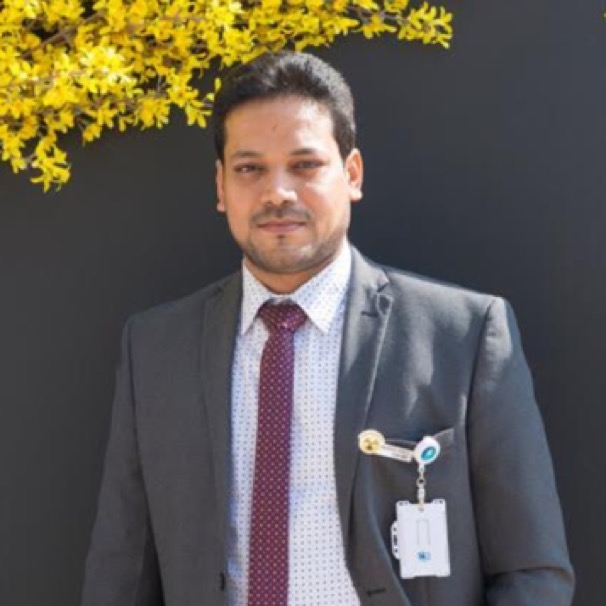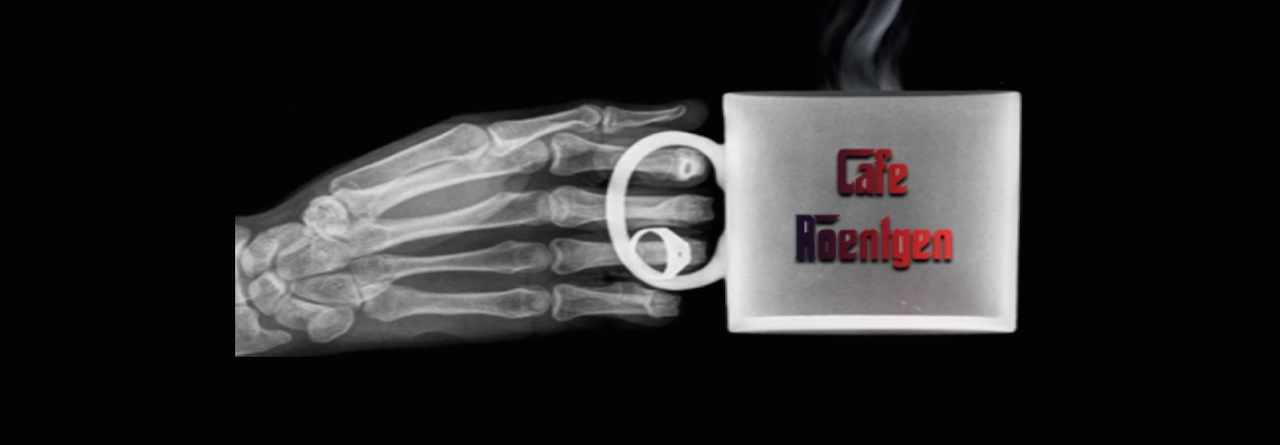I have been working in Kuwait for the past 5 years in one of the most reputed oil companies in the world. It wasn’t a planned move and just happened out of the blue. After my post-graduation, I worked as a consultant Radiologist in India for 4 years during which I gave my FRCR step 1 and 2A and was waitlisted for 2B. One day, an online portal called about potential opportunities in the Middle East and asked me to upload my resume. Though I was uncertain then, one thing led to another, an online interview and selection happened quickly, and I was offered a job. Having never travelled or lived anywhere else out of India, I had some reservations. I had absolutely no idea about the workload or the work environment and was also expecting my first child. Hence, I wasn’t prepared to shift immediately as I didn’t know how long it would take to process their visas and relocate. However, my wife encouraged me go ahead, get some global exposure, and move out of my comfort zone.
After going through the entire process and working in the Middle East for a few years, I am sharing my experience here. I hope this write-up guides everyone and gives an insight to those considering working in the Middle East and clears a few myths and misconceptions.
The Middle East is comprised of 17 countries which vary from very liberal to very conservative nations. The main countries you would be interested in are UAE (Dubai, Abu Dhabi, and Sharjah), Qatar, Bahrain, Oman, Kuwait and Saudi Arabia.
QUALIFICATION AND LICENSING PATHWAYS:
The perception and value of Indian Doctors /Radiologists is very good in the Middle East. The accepted Indian qualifications are MD, DNB, and DM. DMRD is of diminishing acceptance nowadays. Like with every country, there is a Nation specific licensing exam which must be cleared. The exams are DHA for DUBAI, HAAD for ABU DHABI, and PROMETRIC for Oman and Qatar. The exams can be theory or practical based or both. The exam slot can be registered by self in the Ministry Education site or through agencies. Initially there is a probation period which varies from 1 to 6 months during which you will be supervised and cannot officially sign off the reports. Some organizations prefer candidates who have finished the licensing exam beforehand, while some let you give the exam during the probation period. The whole process and paperwork may take 6 to 12 months before you can relocate to that country.
WHAT JOBS CAN I GET:
– Junior & Senior Registrar level; 2 to 6 years’ experience post MD/DNB
– Junior & Senior Specialist level; 6 to 12 years’ experience post MD/DNB
– Junior & Senior Consultant level; 12+ years’ experience post MD/DNB
Please note: Nowadays consultant post is rarely offered to Indians and is difficult unless you are Western Board qualified (e.g.- ABR certified or UK CCT) or are an Arab national.
DM candidates with 3/5+ years of experience may get a consultant post, but that rarely happens currently, and chances are getting even bleaker.
PAY SCALE AND OTHER PERKS:
Pay scales vary based on individual profile, curriculum vitae, experience, fellowships, organization, and last but not the least, being the right person at the right place at the right time!
The average pay scale and perks based on post vary but would be as follows as of now (2021):
– Registrar level ~ 3 to 5 lakh INR
– Specialist ~ 4 to 8 lakh INR
– Consultant ~ 6 to 12 lakh INR – Mainly for foreign trained and western board qualified (ABR, CCT)
– Tax -NIL
– Other perks are country and organization specific. Perks like car, housing etc may or may not be offered.
– Ample time for self and family with good number of paid leaves.
JOB OPPURTUNITIES AND QUALITY OF WORK:
The increasing number of native professionals, bleak and fluctuating oil prices and the pandemic have resulted in relatively less openings when compared to previously. In almost all countries, priority is given to native locals as per the Nationalist policy for all posts and promotions, and they are paid higher salaries despite same or lower qualification/experience. This indirectly lowers the job opportunities, promotions, and salaries for expats. Most of the job openings are at Private hospitals, Private clinics and Poly clinics, Diagnostic centers, and Ministry (Government) hospitals.
HOW TO APPLY: You should apply directly to the organization, through an online job portal site, or through agencies. Some examples include oversees@goodfellow.in; moh@alminternational.com; Gulfjobs.com; timesjobs.com; naukri.com; monsterjobs.com
WHO SHOULD CHOOSE TO GO TO THE MIDDLE EAST: Since its just earning with less learning, this would be an ideal job for:
Those with short term financial commitments.
Those who have completed all the possible qualifications and subspecialty training.
Those who want a less stressful life.
CAUTION FOR:
Young and less experienced radiologists.
Those who want to undergo further specialty training, since there are no opportunities to get trained there.
Those who are too much goal oriented.
Full-fledged Vascular and Neuro Interventional Radiologists.
DM radiologists.
Those who get home sick.
LIFESTYLE AND COST OF LIVING:
The countries range from very liberal to very conservative. The cost of living is based on the country and personal lifestyle, with UAE and Qatar having high cost of living whereas Bahrain, Kuwait, Oman, and Saudi Arabia have a moderate to low cost of living. The rest fall between the two entities.
The above countries are relatively safe for family and women. There are plenty of Indian schools which follow the CBSE and ICSE curriculum. With a chunk of expats being Indian, there are many desi food outlets and stay inns for comfortable stay and service with doorstep delivery. There is ample time for family, self, and recreational centers for kids, and selected Indian and western movies also run in the theatres.
WHAT TO DO ONCE YOU ARE IN MIDDLE EAST:
As soon as you get a confirmed offer (please verify first whether it is a genuine or fake offer), check all the documents required for country specific registration on the respective Ministry site. It’s important to obtain the documents as early as possible, as it is a long process. There will be a lot of paperwork, health checkup etc. before embassy clearance. Though it seems like a mountain of paperwork, with guidance and help from your recruiting agency or hospital and your future colleagues who have already been through the process, it all starts making sense. Note that there are few agencies which do all the paperwork and charge a minimum amount as fee. Once you finish the legal process for self, you can apply for your family, which is relatively less tedious compared to yours.
PROS AND CONS OF MIDDLE EAST:
In summary, just like every other country, the Middle East has its own pros and cons which vary with the country. The pros are a relaxed and comfortable living with fixed working hours, allowing ample free time for self and family. Another big pro is the opportunity to work with the latest infrastructure and multinational doctors with a decent income that is tax free. Due to its proximity to India and a good chunk of Indians present, it feels like a home away from home, and is safe for family. Due to the diversity living in the Middle East, all kinds of schools with international curricula are available.
The cons are the very strict laws and country specific dress codes. There is limited professional growth and subspeciality work in most places. Open socializing is frowned upon in conservative countries. Increasing native professionals, the Covid pandemic and fluctuating oil prices have all resulted in uncertainty of jobs and less openings.
Overall, Middle east is a safe place to live in and work with good pay scale and work ambience.
– Dr. Hari Krishna Rajendran, Kuwait
MD, DNB, FRCR, MMED, EDIR, EACVI, SSCT, SCMR



It’s a menace that needs to go. Systems of cuts and commissions has ruined the sanctity of medical practice leading to malpractice.
LikeLike
Thank you. We think the comment is for the blog on Cut Practice at https://caferoentgen.com/2021/10/08/cut-practice-in-radiology-and-medicine/
LikeLike
Hi Dr. Rajendran,
What would you say are the chances of landing a consultant job in the middle east with FRCR but without CCT?
Are they too insistent on acquiring CCT or is FRCR enough?
Thank you.
LikeLike
Hi,
Most of the places in middle east prefer post CCT or ABR or Candadian board certified doctors for Consultant post not always but most of the times , However still indians can get Consultant post at the discretion of Hospital and medical center .
LikeLike
Hi
How much does ABR certified radiologist will be paid in the middle east
LikeLike
Hi, This is Dr. Singh. I am currently practicing as Radiologist (Senior Resident) at a Cancer Hospital. I wanted to know is Work experience must to apply for Jobs in kuwait? Also Can MBBS, MD, DNB radio apply first before clearing any frcr exam for junior post? Or is it must to clear ABR, frcr exam to practice in kuwait? Can I apply for jobs in kuwait as of now in hospitals directly?
LikeLike
Hi doctor, thanks for your information. Is there any scope of practicing teleradiology for UAE/Dubai based centres or hospitals (after passing MOH/DHA licensing exam) ?
LikeLike
Why caution for vascular IR?
LikeLike
what do you mean by caution for vascular IR?
LikeLike